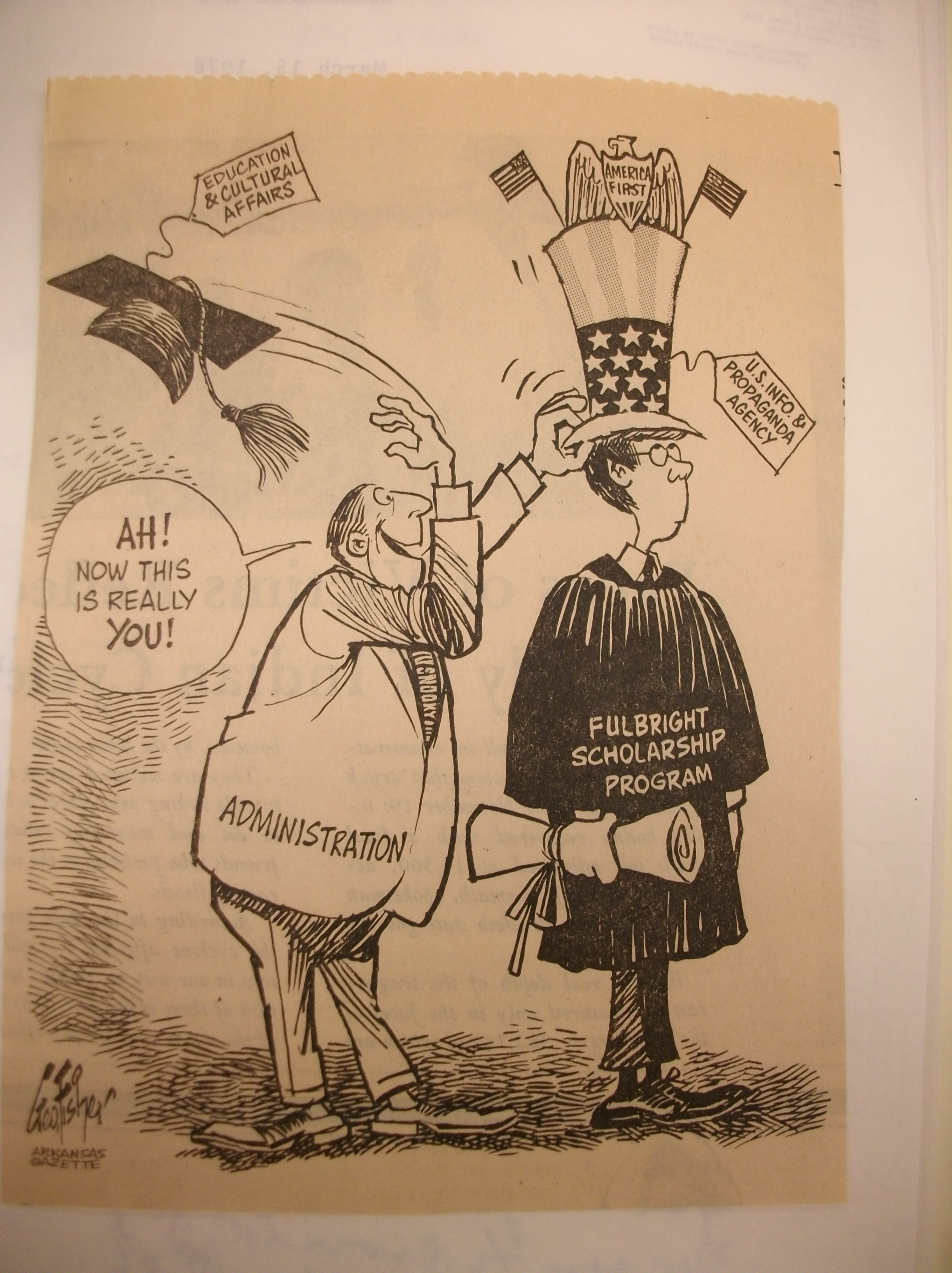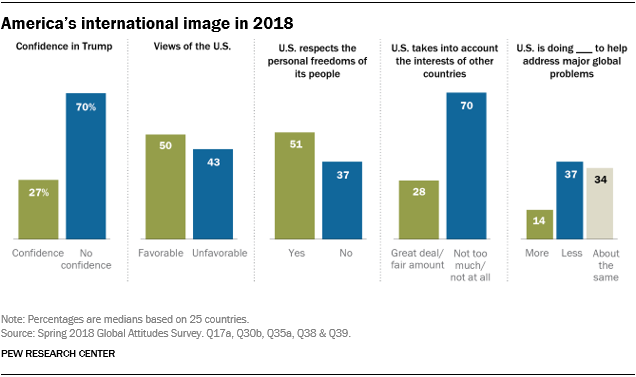On this day in 1946, President Truman signed the Fulbright Act into law. As I did in last year’s post, the program’s anniversary is always an occasion to reflect on the program and what it’s achieved over the years.
Thinking back over its 73 year history, one of the things that stands out most to me is the program’s consistency and stability. The Fulbright Program has shown an amazing ability to survive. It’s outlasted political chaos and economic fluctuations, wars and diplomatic crises, and supportive and critical occupants of the White House.
Recently, I was looking through my old archive photos from University of Arkansas trip, and I came across this gem. The clipping was enclosed in a letter to J.W. Fulbright from Arkansas Gazette editor James O. Powell (Fulbright’s reply letter was dated 9 January 1978). At the time, the Fulbright Program was being shifted from the US State Department to the new, reorganised version of the US Information Agency (USIA), the US International Communication Agency (USICA). This Carter-era bureaucratic shift wasn’t an attempt to turn exchanges into propaganda, as the cartoon suggests. The Carter administration was supportive of exchanges, and it was really more of an effort to shift USIA towards two-way, mutual understanding promotion, instead of its original overseas ‘information’ (propaganda) remit. Despite the fact I disagree with this characterisation of the Carter administration’s USICA, I still like the cartoon, because it perfectly captures the tension between the two conceptualisations of exchange diplomacy–is it about education and culture, or is it about persuasion and national images? Are they mutually exclusive concepts, or is there room for both aspects in exchanges?

Note the “America First” slogan on the eagle, too–Trump didn’t invent the phrase. This attitude is nothing new, and it’s part of a bigger concept of what the US is/does/stands for. I love that it’s opposed to education and culture. That’s appropriate for the current wave of populist politics–cutting public education funding, cutting the National Endowments for the Arts and for the Humanities, rejecting climate science and vaccine research, generally anti-expertise attitudes.
Yet, despite all of that, the Fulbright Program carries on, as it has for the past 73 years, quietly bringing students and scholars, professors and researchers into contact with their international colleagues, facilitating the exchange of ideas and promoting mutual understanding. When America’s President is viewed unfavourably around the world, the American people are still regarded in a positive light–and I think it’s thanks, in part, to interpersonal contact.

When you can relate the abstract idea of America to an actual person you know, not just Hollywood, or Coca-Cola, or blue jeans, or Disney, you can get past its leader. This gives some hope for other countries, too–if you know a British person, you’ll know they’re not all like Boris Johnson. My Chinese students are not Xi Jinping, my Brazilian friends are not Bolsonaro, etc. (That said, when you have a leader that’s viewed favourably, it helps!)
May the Fulbright Program continue bringing people together, showing Americans and international participants the realities of life in other countries and cultures, and promoting genuine mutual understanding of international affairs that goes beyond the headlines.

